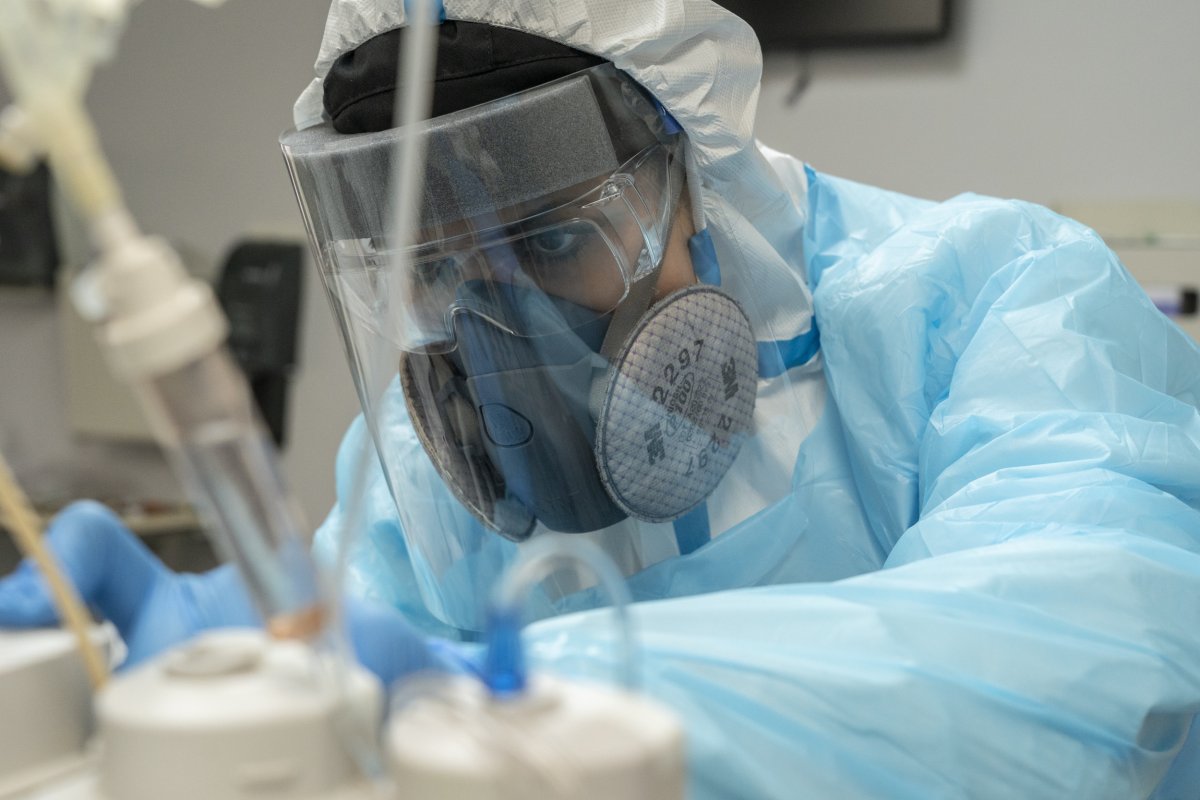The Delta coronavirus variant, first identified in India, is surging in the United States and now responsible for the vast majority of new COVID cases in the country.
The current seven-day average of new cases is about 130,000, and Dr. Francis Collins, the director of the National Institutes of Health, warned in an interview with Fox News on Sunday that the number of daily cases could soon return to 200,000 a day.
Given the latest surge, is it possible to predict when this latest wave of infections, propelled by the Delta variant, will peak?
"This is very difficult to say and readers should be somewhat suspicious of anyone who claims to know the exact time Delta will peak," Dr. Benjamin Linas, a professor of medicine at Boston University, told Newsweek.
"To a great extent, the answer is within our control. If we continue to press hard on vaccine while also implementing some basic mitigation—masking when indoors and in public—we can end this more quickly. If, however, we fail to implement any form of mitigation or control, the surge could continue. It is not a mystery how to end the Delta surge, but Americans are exhausted and there is little will to take action."
Linas, who works with a research team looking into this question using a simulation model, said their data suggests that without intervention, many states could see Delta variant surges, with death rates higher than in the first wave of COVID in the U.S.
"That is extremely upsetting," he said. "If you are vaccinated, you almost certainly will not be one of the people who dies from Delta, but you still need to care about this surge because it is generating the conditions that result in new variants. If we allow a long-tailed epidemic with moderate vaccination rates in the community, we will see more variants and one could escape the vaccine."
Jagpreet Chhatwal, an associate director at the Institute for Technology Assessment, Massachusetts General Hospital, and an assistant professor at Harvard Medical School, said modelling projections from the COVID-19 Simulator project—with which both institutions are involved—suggest COVID cases will peak during October-November, depending on the state.
Lots of Different Peaks
"We should not be looking for one peak nationally; we are essentially looking at 50 regions in the same country that are very different from each other with respect to vaccination rates and social distancing measures," Chhatwal told Newsweek.
Chhatwal said projected daily deaths could very likely exceed their earlier 2021 peak in several states––including Idaho, Maine, Montana, Nebraska, North Carolina, Oregon, Washington and West Virginia––if current social-distancing behaviors and vaccination rates remain unchanged.
Meanwhile, states like New Jersey, Connecticut, Massachusetts and Vermont are unlikely to see another peak because of high vaccination rates, he said.
"We are clearly at the beginning of the new COVID wave because of the emergence of the Delta variant," Chhatwal said. "Things are likely to get worse before they get better by the end of the year."
The Delta variant spreads much faster than other variants, according to the Centers for Disease Control and Prevention. Linas said this explains why the U.S. is being hit so hard currently, as has happened in many other countries around the world where the variant has taken hold.
Masks and Vaccinations Are Crucial
But Chhatwal said a combination of two factors contributed to the latest COVID wave in the United States.
"First, the Delta variant emerged in the U.S. soon after social distancing restrictions—including a mask mandate for the vaccinated—got lifted," he said.
"Since the COVID cases and deaths had declined to a very low level, people's attitudes towards social distancing changed. Second, the vaccination rate remains suboptimal. When the Delta started emerging in July, most states didn't even have 50 percent of the population fully vaccinated."
According to Chhatwal, this combination of lower vaccination and relaxed attitudes created ideal conditions for the Delta variant to spread in communities.
"To get out of the wave sooner—or reduce the impact of the wave—we need higher vaccination rates and more social distancing, including indoor mask mandates in almost all states," he said.
So long as there are large segments of the population that are not vaccinated—as is currently the case—waves of infections will continue to occur as the virus finds new pockets of susceptible people, Linas said.
"The forest fire analogy is both timely and effective. Unvaccinated people are the dry tinder, infected people are the sparks. If we vaccinate everyone and remove all of the tinder, then even with a string spark we will not get a fire," he said.

Uncommon Knowledge
Newsweek is committed to challenging conventional wisdom and finding connections in the search for common ground.
Newsweek is committed to challenging conventional wisdom and finding connections in the search for common ground.
About the writer
Aristos is a Newsweek science reporter with the London, U.K., bureau. He reports on science and health topics, including; animal, ... Read more





